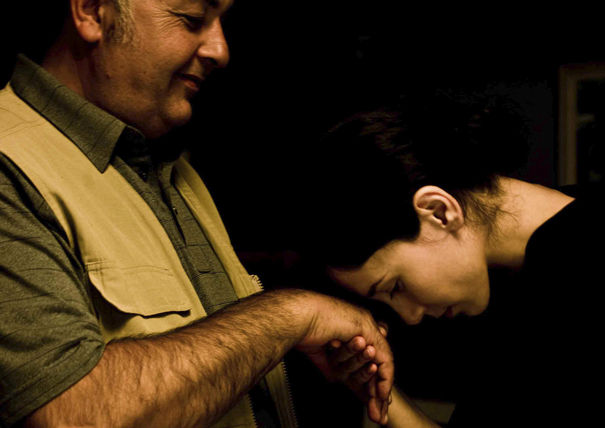Some Day
An act of private defiance against social conventions in Turkish German society - Feo Aladag's debut from Berlinale Panorama.

WHEN WE LEAVE
A young woman holding a little boy by the hand walks down a city street. A young man accompanying them halts, produces a gun and points it at the woman who gives him a bewildered and resigned look. Her face reveals deep pain, yet we see pride in it.
WHEN WE LEAVE (Germany), featuring in the Berlinale Panorama, tells the story of Umay, a German woman of Turkish descent who flees an unhappy marriage and seeks refuge in her family home. “She is not at home, after all”, her father says, and, despite her hopes, she will discover that he is right. Her family’s system of values is that of the community it belongs to: to their mind, Umay is a property in possession of her husband and has to bear with whatever the marriage involves. As a breach of traditional values, her escape stirs unwanted attention and triggers a series of tumultuous events that will irreparably disrupt the family.
Feo Aladag’s feature debut evolved from her writings on the issue of family violence. Picking her character from the Turkish minority, she juxtaposes female emancipation with patriarchy taken to the level of abuse. Slaps fly all around, but in the end, a woman has to accept that “the hand that strikes is the hand that soothes.”
Aladag makes a good point by showing that phallocentrism survives largely because of the staunch support of women themselves. Umay’s mother is subdued by aggression to the point of holding it as inevitable. The power to sway her husband lies in her hands, yet all she does is encourage his conviction that no reconciliation is possible and that radical steps have to be taken in order to remove the stain from the family name.
In her departure from tradition, Aladag chooses not to employ Turkish folk music, but uses piano passages which are, coincidentally, quite reminiscent of those heard in Jane Campion’s THE PIANO, another story of a woman’s struggle for emancipation. She seems to have had plenty of material to draw on from her research and preferred to include most of it. For the story it tells, the film would have probably made a stronger impact in a more concise form. As it is, WHEN WE LEAVE climaxes at several points, making us feel we have already understood the message it repeatedly conveys. However, by keeping the pace steady, Aladag manages to keep the audience involved with her heroine. An actress herself (though not in this film), she manages to pull the best out of her cast, with Sibel Kekilli’s lead being particularly compelling.
WHEN WE LEAVE is a bold criticism not only of the oppression that happens behind the closed doors, but also of the fact that it can be publicly accepted. Resolving the cultural differences will take quite a while, but showing the issues is the first step.


301 Moved Permanently